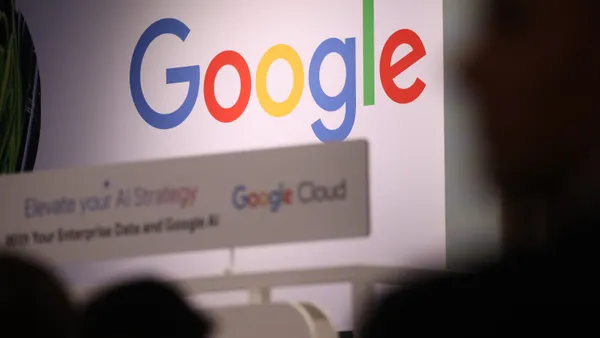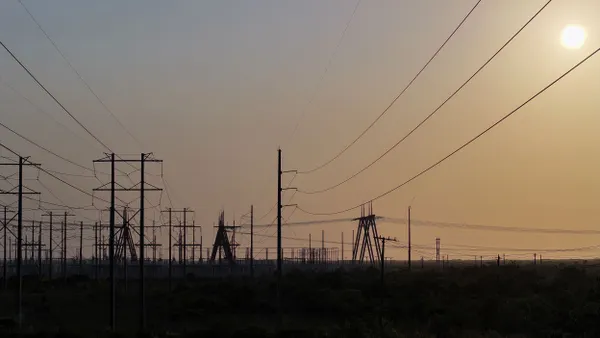UPDATE: June 18, 2021: The Maine Senate on June 17 rejected by one vote a bill to purchase the assets of the state's two investor-owned utilties and create a statewide public utility, after it previously passed the House. The bill faced a likely veto from Gov. Janet Mills, D, the Portland Press Herald reported.
Dive Brief:
- State lawmakers and activists are pushing for Maine to create the first, statewide, publicly owned utility in the United States.
- Proposed legislation would create a new, nonprofit utility. The Pine Tree Power Company would issue bonds to purchase the assets of the state's two investor-owned utilities, Central Maine Power, a subsidiary of Avangrid and the state's largest utility, and Versant Power, formerly known as Emera Maine.
- Proponents say a key goal of creating such a publicly owned utility would be to make Maine the first state to reach its goal of 100% renewable energy. CMP contends it would take Maine years — and several billion dollars at least — to buy its assets and create a publicly owned utility.
Dive Insight:
Our Power, a Maine group that bills itself as a coalition of "ratepayers, business leaders, energy experts, conservationists, and others," is leading the campaign to create a publicly owned utility in the Northern New England state.
The group points to support from both sides of the political aisle, including the former Republican Senate president and members of the Legislature's utilities committee, including the House chair of the committee.
Supporters contend a publicly owned utility would reduce costs for ratepayers and improve reliability, in addition to leading the drive to make Maine the first state to hit its goal of 100% renewable power.
A similar proposal was unveiled in 2019, resulting in a feasibility study for the Maine Legislature by London Economics International. The proposal was relaunched in early 2020, but fizzled out once the pandemic hit, said state Rep. Seth Berry, D, House chair of the Energy, Utilities and Technology Committee and sponsor of the bill.
"The facts are clear: investor-owned utilities are not meeting the needs of the Maine people, and the legislation we're proposing will not only strengthen our grid, but it will also lower rates, advance Maine's carbon emission goals," Rep. Nathan Carlow, R, a member of the legislature's utilities' committee, said in a press release.
There have been 63 attempted conversions of local utilities into municipal power companies over the past two decades, with 10 attempts successful, according to a report by Concentric Energy Advisors that was commissioned by CMP.
Other cities were considering such proposals at the time of the report, which was released in 2019, including Pittsburg, California, Santa Fe and San Francisco.
During the same period, six municipally-owned utilities were privatized, according to the report.
Supporters contend a publicly owned utility would provide significantly less expensive power, citing the example of nine, small consumer-owned utilities that serve part or all of 97 towns in Maine.
Acquiring the two utilities could cost $5 billion to $7.5 billion, but would lower long-term rates and costs and save customers $9 billion, according to a report to the Maine Legislature from London Economics International.
"It will allow us to focus on the needs of the consumers here in Maine," said Berry, the House utilities committee chair. "Divided loyalties are a problem in the investor-owned utility world."
Avangrid, the parent company of CMP, is aggressively pursuing renewable energy goals as part of Maine's Climate Action plan, according to spokesperson for the company Catharine Hartnett.
The Connecticut-based Avangrid, which has more than three million customers across New England and New York, is "one of the leading renewable developers in the country," Hartnett said.
Avangrid's portfolio includes Vineyard Wind, which just received its final approval from federal regulators. The first commercial-scale offshore wind farm in the U.S., the project is a joint venture for the company, Hartnett said.
Comparing a statewide investor-owned utility like CMP, which has 646,000 customers, or Versant, which has 160,000, to small, municipal power companies is comparing oranges to apples, Hartnett said.
Average monthly bills for CMP customers are significantly less than those served by larger electric cooperatives in New Hampshire and Vermont, according to Hartnett.
In terms of reliability, small, municipally-owned utilities have to keep the lights on for, at most, a few thousand customers.
By contrast, CMP is responsible for "11,000 square miles of the most heavily-forested state in the country,"
CMP has an aggressive tree trimming program, and is now seeking permission from state regulators to expand the zone around its power lines that it can trim branches, she said.
As far as the cost of acquiring CMP and Versant, the total bill would likely top $13.5 billion and take a decade to complete, with legal challenges along the way, Harnett said.
Judy Long, spokesperson for Versant Power, said past proposals by supporters of a publicly owned utility "did nothing to guarantee lower rates and more reliability for customers."
As for its commitment to clean energy, Versant is "working hard on the state's renewable energy goals," Long said, adding the utility has "ambitious goals."
Correction: A previous version of this story misidentified one of the cities that has considered municipalization. It is Pittsburg, California.














